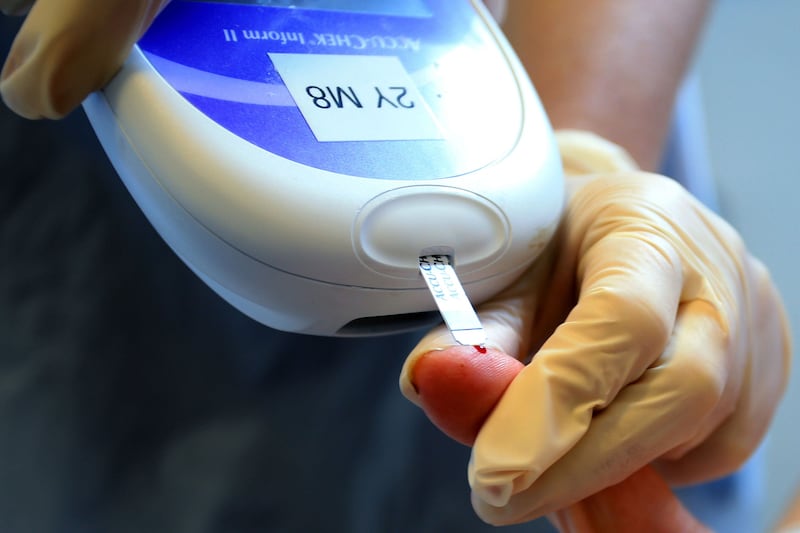MOST adults in Northern Ireland eat three or fewer pieces of fruit and vegetables a day - well below the recommended five portions.
A survey also found that almost two-thirds don't eat any fruit at least three days a week, and three-quarters don't know what constitutes a portion.
Diabetes UK, which commissioned the findings to promote its 'Food You Love' healthy eating campaign during Diabetes Week, said it is "huge cause for concern" that people in the north are failing to meet the recommended daily diet.
More than 100,000 people are living with diabetes in Northern Ireland, caused when the amount of glucose (sugar) in the blood is too high because the body can't use it properly. If left untreated, high blood glucose levels can cause serious health complications.
There are two types - Type 1 is less common and is not associated with diet, but many Type 2 cases can be delayed or prevented through a healthy lifestyle.
The organisation said the survey highlighted that almost 70 per cent of people now know someone with the condition, yet most would ignore many of the symptoms of diabetes, including thrush, fatigue, increased urination and extreme thirst.
Jillian Patchett of Diabetes UK NI said six out of 10 people told questioners they want to eat more vegetables, but many thought they were too expensive or believe they tend to go off.
"In Northern Ireland there are over 100,000 people living with diabetes with an estimated 90 per cent of that number living with Type 2 diabetes," she said.
"Simple lifestyle changes such as eating a balanced diet, eating more fruit and vegetables and getting more exercise are an important part of managing all types of diabetes and can reduce the risk of serious or long term complications such as blindness, amputations and even early death.
"A healthy lifestyle can also massively reduce your risk of developing Type 2 diabetes.
"We know that obesity is one of the biggest risk factors for Type 2 diabetes, with two in three people in the UK being overweight or obese, but three in five cases of Type 2 diabetes can be prevented or delayed by maintaining a healthy weight, eating well and being active."
For information on the Food You Love campaign, including recipes, see www.diabetes.org.uk/feelgood-food







